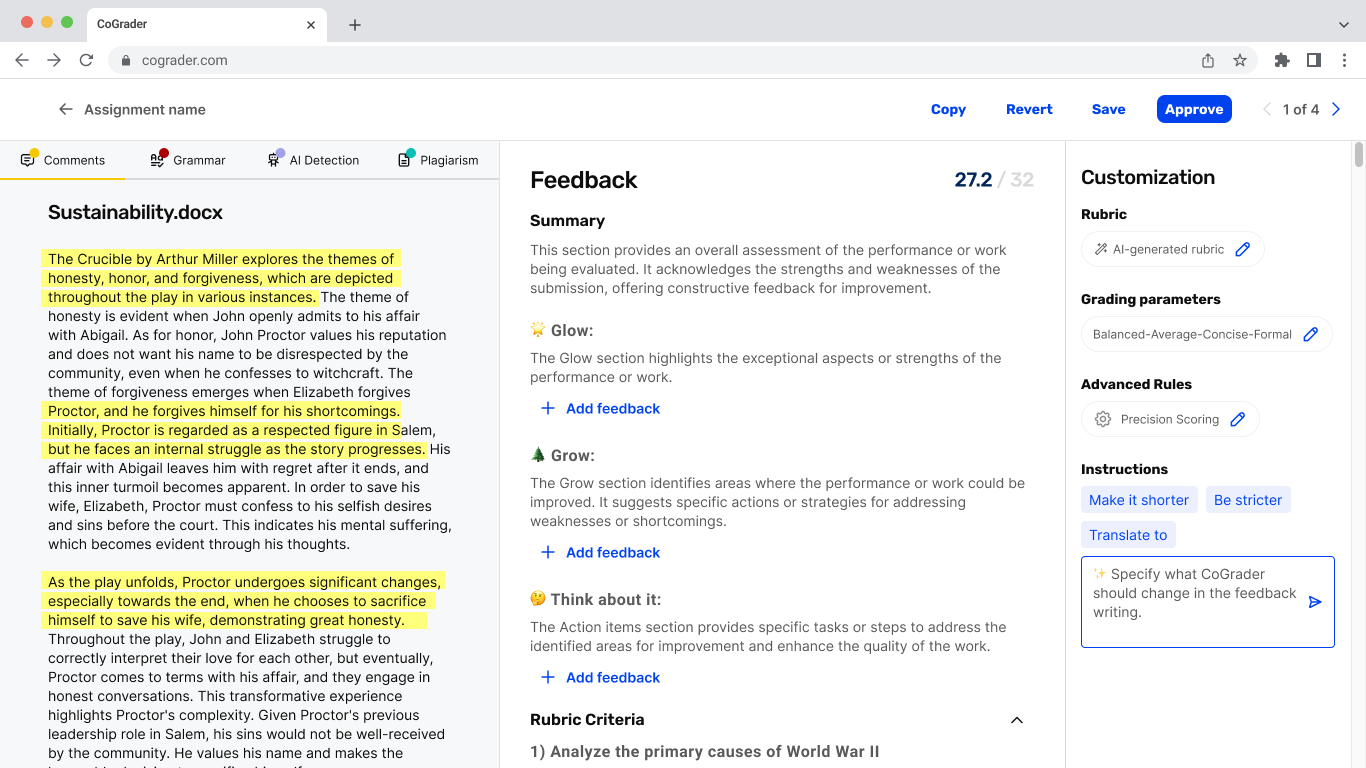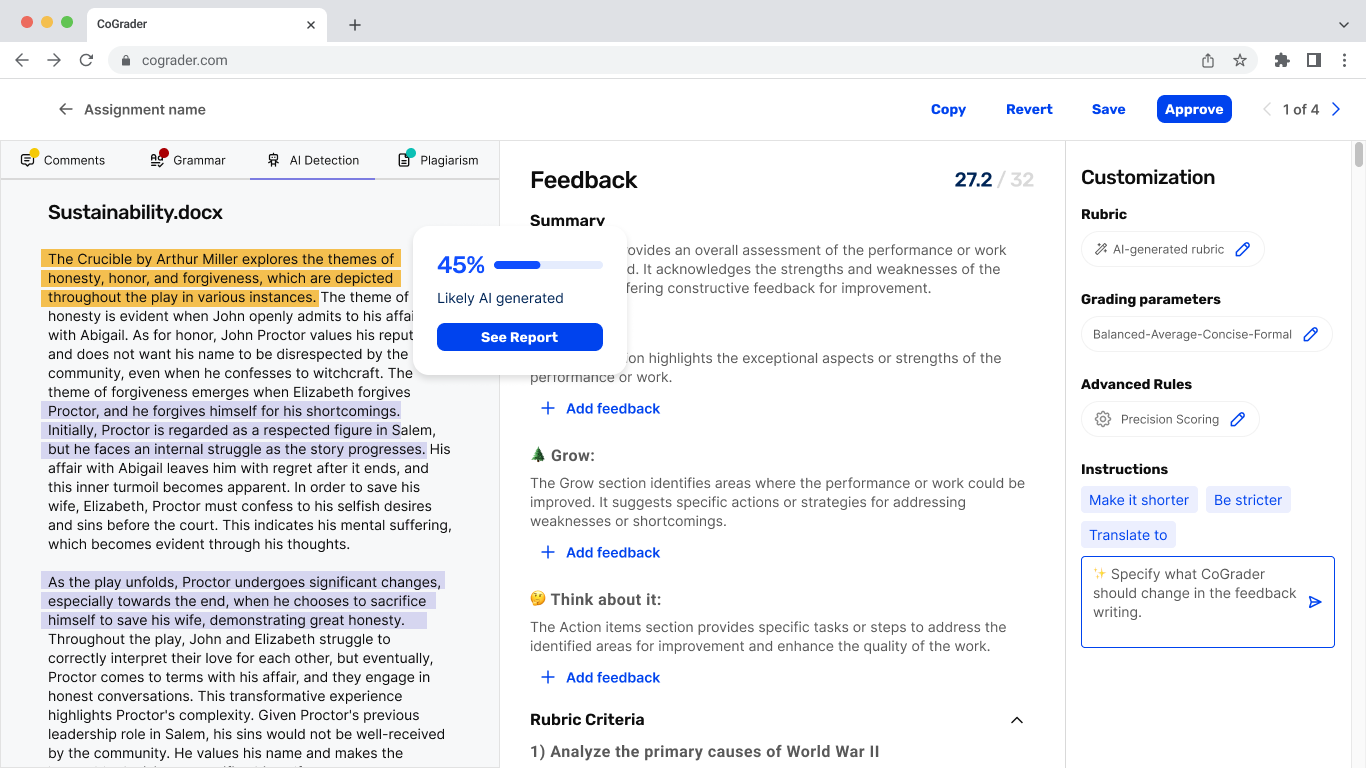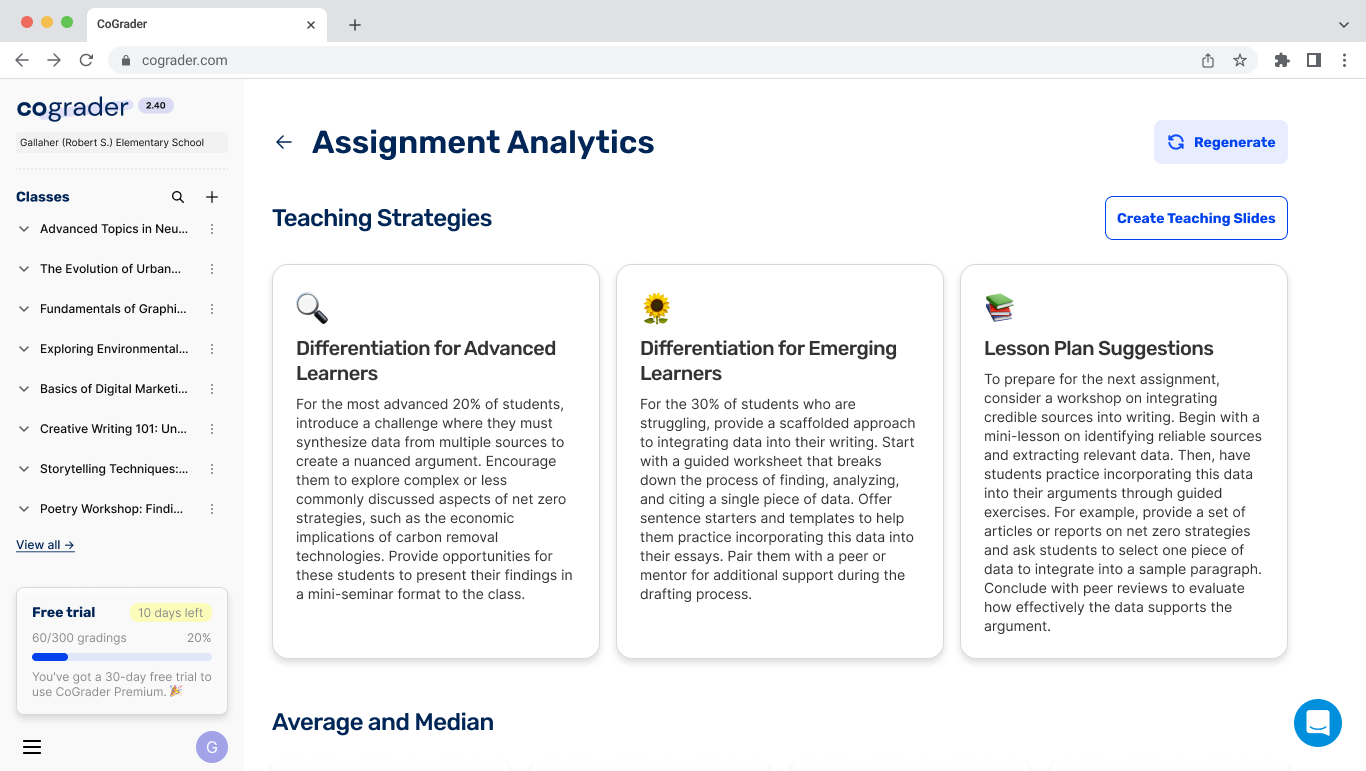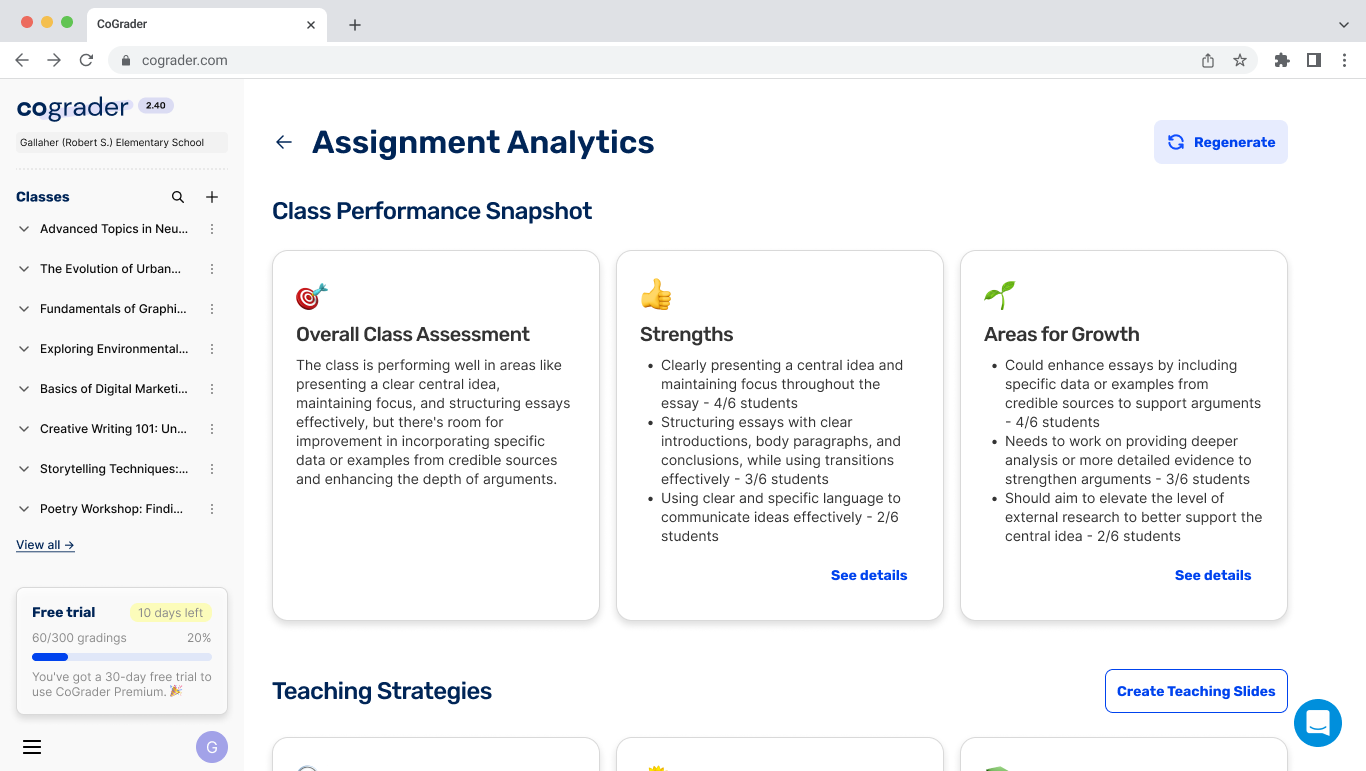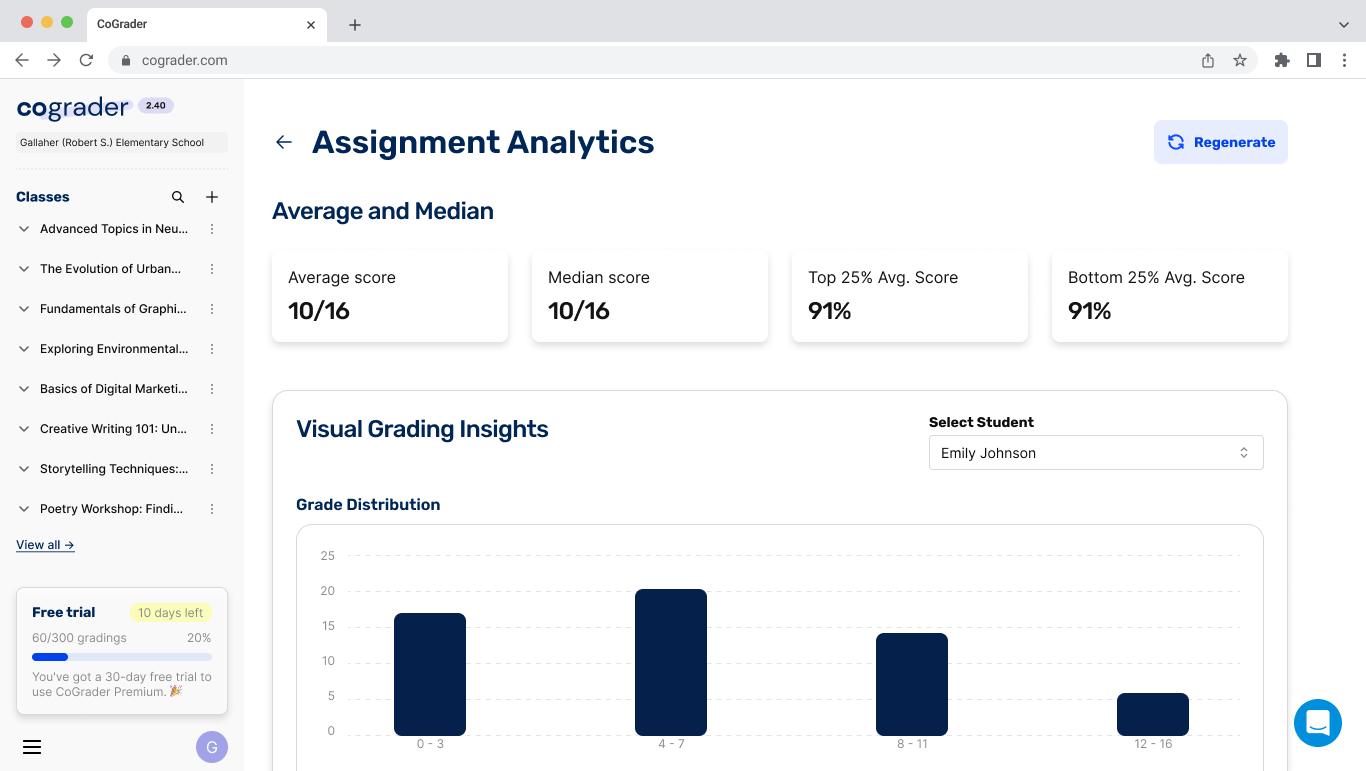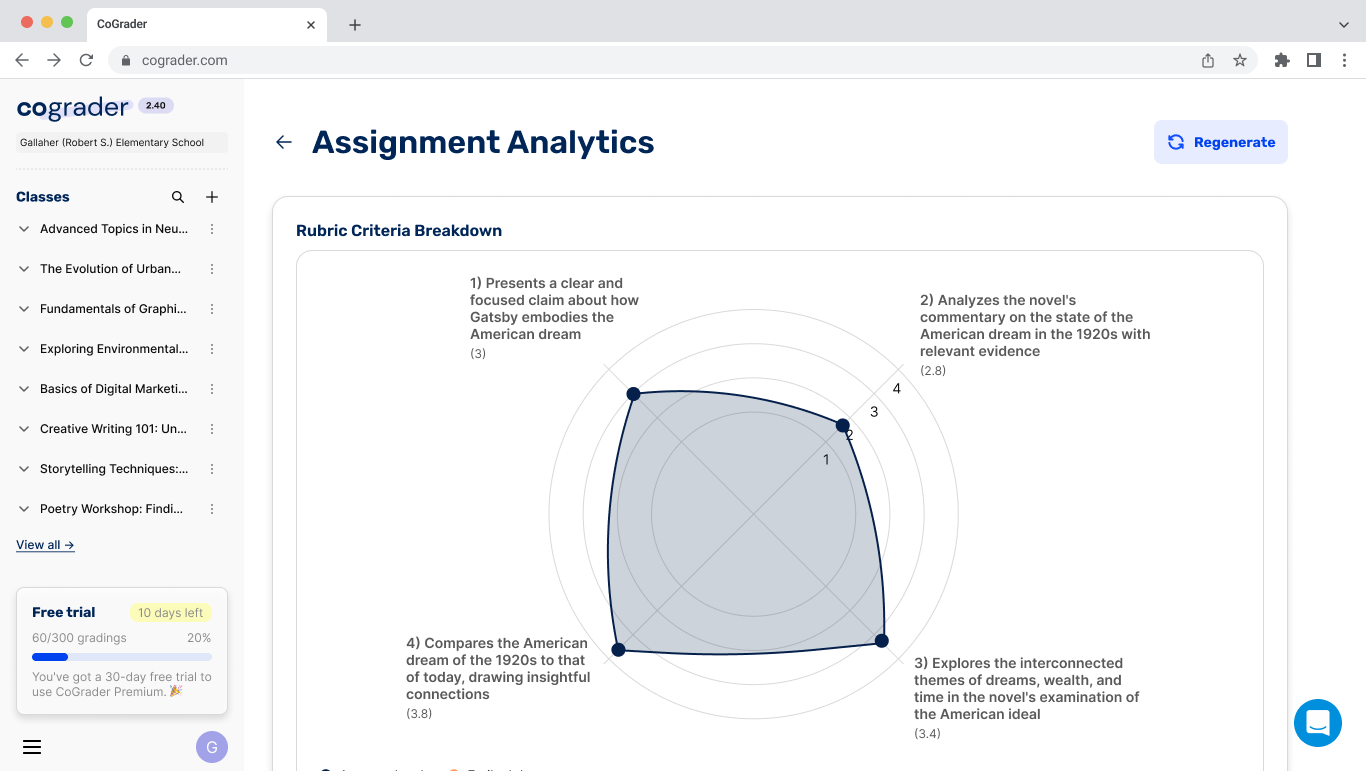Overview
CoGrader, an AI-powered grading platform for teachers, faced low feature discoverability, inconsistent interactions, and limited user understanding of its most valuable tools. In late 2024, I was brought in to redesign the platform’s core flows and make key features like AI insights, grammar corrections, plagiarism detection, analytics, and AI-generated rubrics easier to find and use.
MY ROLE
UX Designer. Responsible for colaborating with CoGrader's tech manager and stakeholders, creating high-fidelity screens, user flows, visual design, and design documentation.
CLIENT
CoGrader
PLATFORM
Web
CATEGORY
EdTech
YEAR
2024-2025
Impact Highlights
Streamlined feedback experience
Redesigned the teacher feedback screen to make AI-generated insights more intuitive and actionable.
Improved feature discovery
Increased visibility of analytics and rubric creation, helping teachers leverage the platform’s full potential.
Consistency across flows
Reduced interaction inconsistencies, leading to a smoother, more predictable user experience.
Key Contributions
Received tasks from tech manager based on qualitative and quantitative research, including teacher interviews, analysis of support channel feedback, and behavioral tracking via PostHog.
Mapped current vs. ideal user flows, identifying friction points in discovery and comprehension.
Collaborated with the tech manager to align changes with business priorities and technical feasibility.
Delivered redesigned interaction flows with clear entry points, consistent navigation patterns, and improved visual hierarchy.
OUTCOME
Creating new flows resulted in...
Teachers now finding it easier to discover, understand, and act on key features, leading to higher engagement with AI tools and a more effective grading workflow. The redesign strengthened both usability and business alignment, setting the stage for future feature adoption.

